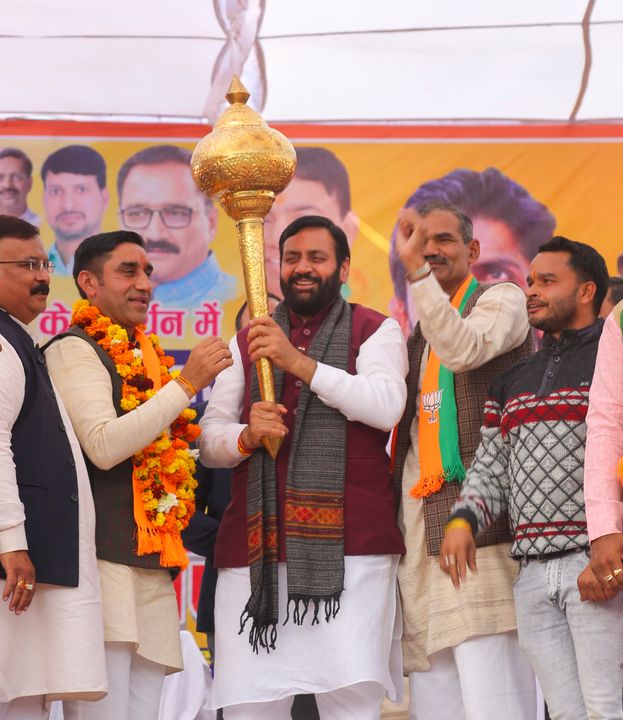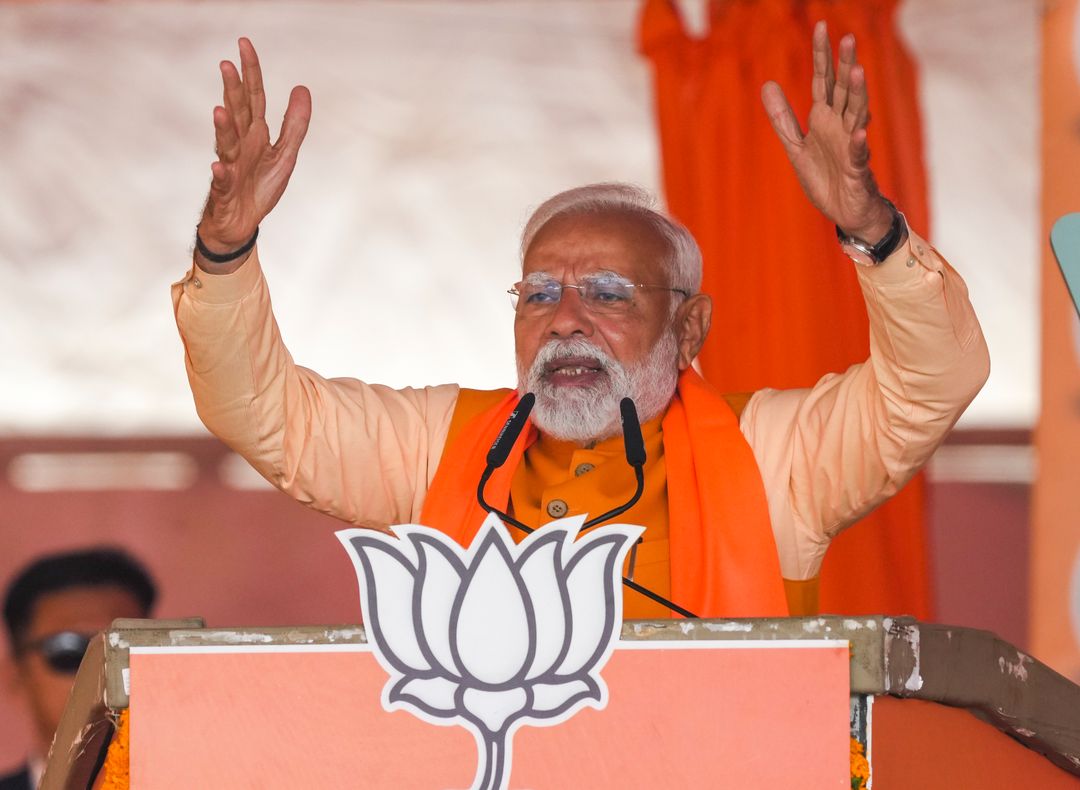New Delhi, Feb 3 (PTI): The high-voltage 27-day campaign for the upcoming February 5 Delhi Assembly elections has come to a fiery conclusion, with the three key contenders—Aam Aadmi Party (AAP), Bharatiya Janata Party (BJP), and Congress—locking horns over governance, freebies, and personal attacks.
From the “Sheesh Mahal vs Rajmahal” debate to accusations over a “poisonous Yamuna” and allegations of voter manipulation, the battle for Delhi witnessed intense mudslinging, high-profile rallies, and an all-out effort to sway voters.
While the BJP and Congress latched onto the "Sheesh Mahal" and "liquor scam" narratives to target Kejriwal, AAP countered by accusing the BJP of governance failures under Amit Shah, branding the prime minister’s residence as a “Raj Mahal.”
Kejriwal’s controversial remark accusing the BJP government in Haryana of "mixing poison" in the Yamuna to commit genocide in Delhi further escalated tensions. The BJP dismissed the claims, calling them an attempt to divert attention from governance failures.
Congress also added fuel to the fire, with leader Ajay Maken labeling Kejriwal "anti-national," prompting AAP to threaten action within the INDIA bloc.
As Delhiites head to the polls, the big question remains: Will Kejriwal secure a third consecutive term, or will BJP and Congress stage a dramatic comeback? The results on February 8 will decide the future of Delhi’s political landscape.
From the “Sheesh Mahal vs Rajmahal” debate to accusations over a “poisonous Yamuna” and allegations of voter manipulation, the battle for Delhi witnessed intense mudslinging, high-profile rallies, and an all-out effort to sway voters.
Heavyweights Lead the Charge
Prominent leaders, including Prime Minister Narendra Modi, AAP chief Arvind Kejriwal, and Congress leader Rahul Gandhi, spearheaded the campaigns, each presenting their vision for Delhi while fiercely attacking their opponents.While the BJP and Congress latched onto the "Sheesh Mahal" and "liquor scam" narratives to target Kejriwal, AAP countered by accusing the BJP of governance failures under Amit Shah, branding the prime minister’s residence as a “Raj Mahal.”
Freebies Take Center Stage
Promises of free schemes dominated party manifestos, with all three players announcing major welfare initiatives. Each party vowed financial assistance of ₹2,100–₹2,500 for women, free electricity, and free medical treatment for senior citizens.- AAP’s promises: Monthly stipends for temple priests and gurdwara granthis, free bus rides, and schemes for youth, students, and auto-taxi drivers.
- BJP & Congress' offers: Subsidized LPG cylinders at ₹500. BJP additionally promised ₹21,000 for expecting mothers, while Congress pledged ₹8,500 per month for unemployed youth.
Blistering Attacks and War of Words
PM Modi, in his speeches, urged voters to oust AAP, dubbing it as "AAP-da" (disaster) for Delhi. AAP, in return, slammed the BJP, calling it the "Gali Galauj Party", referencing the alleged use of abusive language by BJP leader Ramesh Bidhuri against Priyanka Gandhi Vadra and Atishi.Kejriwal’s controversial remark accusing the BJP government in Haryana of "mixing poison" in the Yamuna to commit genocide in Delhi further escalated tensions. The BJP dismissed the claims, calling them an attempt to divert attention from governance failures.
Congress also added fuel to the fire, with leader Ajay Maken labeling Kejriwal "anti-national," prompting AAP to threaten action within the INDIA bloc.
Election Commission Raids and Voter List Manipulations
Amidst the high-stakes battle, controversy erupted over a poll officials' search at Punjab CM Bhagwant Mann’s residence in Delhi. Both BJP and AAP accused each other of vote deletion and voter registration fraud, with BJP alleging AAP was enrolling Bangladeshi and Rohingya immigrants, while AAP countered that BJP was orchestrating voter deletions to weaken its support base.Digital Warfare and AI-Driven Attacks
The BJP leveraged AI-generated spoofs and slogans, branding Kejriwal as "Mahathug," "Chunavi Hindu," and "Ghoshna Mantri." AAP, in turn, mocked the BJP for lacking a chief ministerial candidate, calling its campaign "Bin Dulhe Ki Baraat" (a wedding party without a groom).Targeting Key Voter Blocs
With Purvanchali voters forming a significant portion of Delhi’s electorate, all parties sought to tap into regional sentiments, promising grand Chhath Puja celebrations and incorporating Bhojpuri campaign songs into their outreach.Final Showdown on February 8
With 699 candidates contesting across 70 constituencies, the upcoming election is not just a verdict on AAP’s governance model but a crucial test for the BJP and Congress’ revival in Delhi.As Delhiites head to the polls, the big question remains: Will Kejriwal secure a third consecutive term, or will BJP and Congress stage a dramatic comeback? The results on February 8 will decide the future of Delhi’s political landscape.
Last updated by a enewsx:


